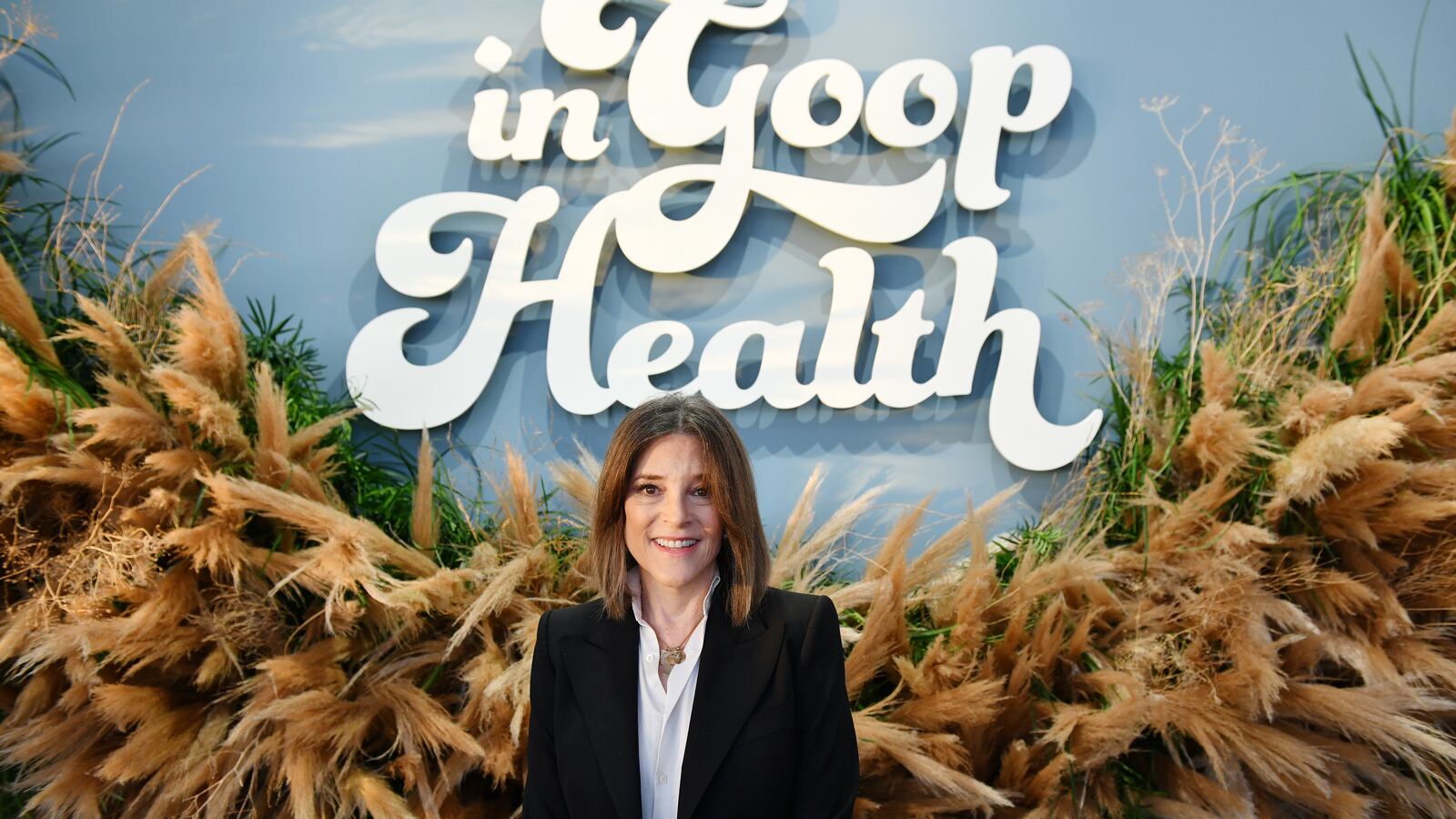Long known for her science-defying stances on health issues, presidential candidate Marianne Williamson says she has advisers guiding her vaccine policy. On Tuesday, she named one: Jim Turner, a longtime lawyer for the anti-vaccine movement.
He says he has no official ties with the campaign.
Williamson, a self-help guru running for the Democratic nomination, objects to the label “anti-vaxx” (she prefers the term “safe-vaxx,” which is a popular euphemism in anti-vaxx circles), but she has hewed close to anti-vaccine talking points. On Tuesday, she told NBC that lawyer Jim Turner was advising her on vaccine policy. Turner, who has filed multiple lawsuits against vaccine programs, has spent decades advocating against immunizations while using similar “pro-safety” language as Williamson.
“There’s a man named Jim Turner, Dr. Jim Turner in Washington, D.C., who I talk to quite a bit,” Williamson told NBC when asked who was advising her vaccine policy. She did not offer any other names.
Turner told The Daily Beast that he did not work for the campaign in any official capacity.
“First of all, to be very clear, I am not a doctor. I’m a lawyer. I answer questions about all kinds of things all the time for all kinds of people, many times. I’ve talked to people from her campaign who’ve asked me questions about vaccines,” he said, adding that “when they call me and ask me questions, I answer them as I would for anyone.”
He estimated that he’d spoken to the Williamson campaign three times in the past three months. Although he said he didn’t remember the specifics of the calls, he said he’d largely “restated” his publicly available stances on vaccines. The Williamson campaign did not return a Tuesday request for comment.
Williamson is facing new scrutiny over her vaccine policy after she uploaded a Facebook post last week rife with vaccine misinformation, including a baseless claim about “neurons-toxins and so forth.” She proposed a new federal panel to study vaccines, although one already exists.
That language is common in the anti-vaccination community.
Turner has spent years as a leading lawyer in the anti-vaxx movement. In 2009, he was part of a group that filed suit against a swine flu (H1N1) vaccination program in New York. The lawsuit came during a global swine flu pandemic, but Turner accused public health officials of overstating the outbreak’s risks. He claimed the vaccine had not been properly tested, and further speculated that its use could spark a swine flu outbreak (it did not).
In 2016, he sued to block a California law that required children enrolled in schools and daycares to be vaccinated, unless they had a legitimate medical exemption. His case failed.
Outside of those lawsuits, Turner has been a prominent voice in the anti-vaccine movement for years. He was a contributor to Vaccine Epidemic, a 2011 book in which he argued that “a government that requires individuals—particularly children—to be vaccinated, knowing that some will die and others will be permanently disabled as a result, risks losing all moral authority.”
Later in the chapter, he likened vaccinated children to death row inmates to argue that both had been unconstitutionally denied due process. The essay concluded with a quote from a colleague encouraging Americans not to get their flu shot.
Turner is also founder of Citizens for Health, a nonprofit that opposes obesity and supports transparency in the health industry. Its actual record on issues like food labeling and sugar, however, appears to conflict with some of those aims.
Turner’s CFH has lobbied to obscure information about alternative health supplements. In multiple campaigns, CFH opposed bills that would have required increased labeling on herbal supplements.
The nonprofit is also cozy with the sugar industry. In 2012, more than half of CFH’s funding came from the Sugar Association, Bloomberg News reported in an article calling the practice “stealth lobbying.” Turner told Bloomberg that the money went toward a campaign against corn syrup’s use as a sugar alternative. The Sugar Association also donated to CFH the previous decade during a campaign against the alternative sweetener Splenda. At the time, CFH asked the Food and Drug Administration to withdraw approval from Splenda, citing possible side effects like stomach pains. In 2014, the Sugar Association gave CFH a $260,000 grant—more than it has given any organization in a single year afterward.
Like Williamson, Turner did not call for an end to vaccines, but implied that they could be dangerous. His dream vaccine policy, he said, would provide “the maximum amount of protection and the least amount of harm.”
“Whether it’s Marianne Williamson or anyone else, it’s basically irrelevant,” he said.





